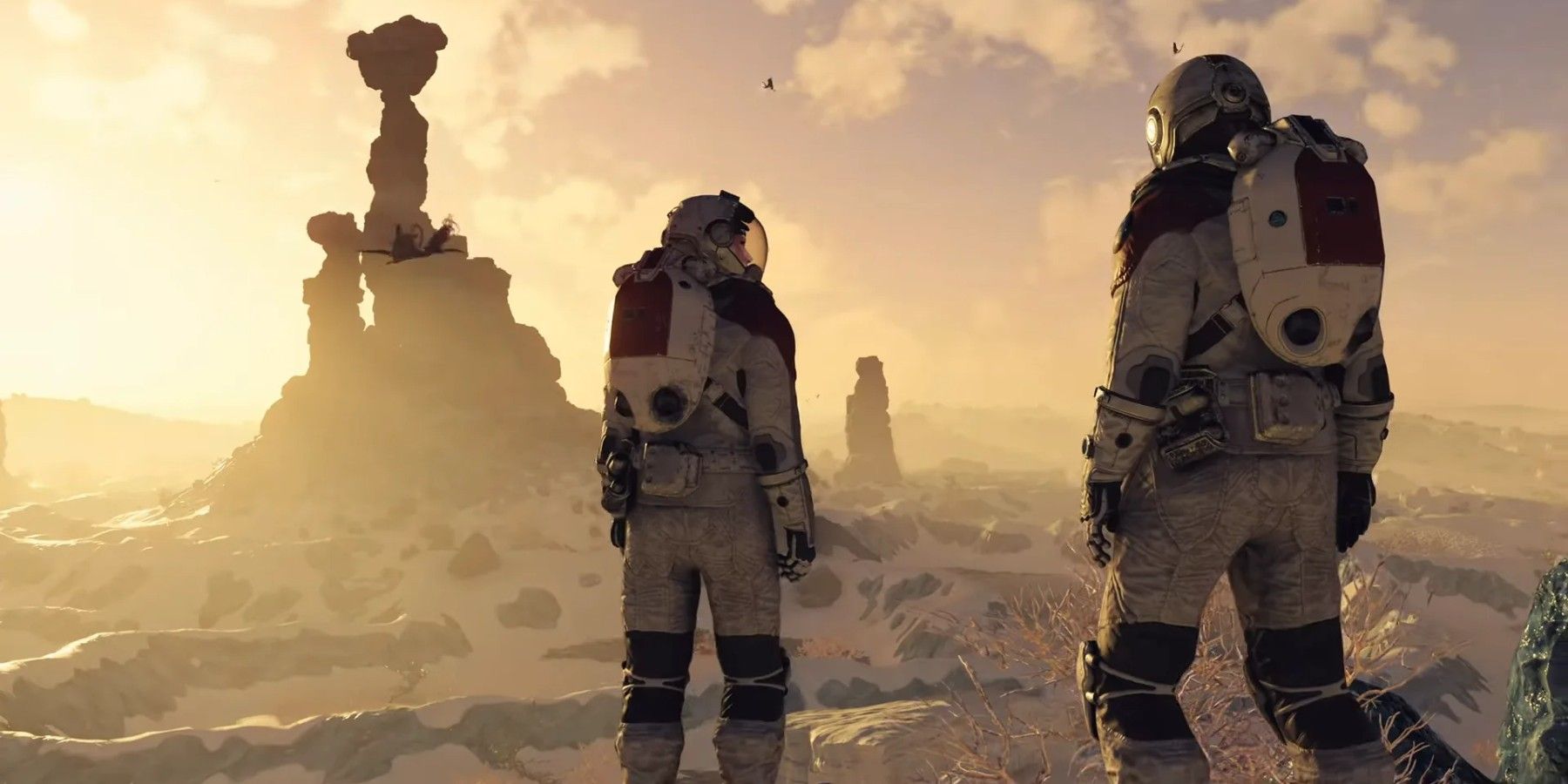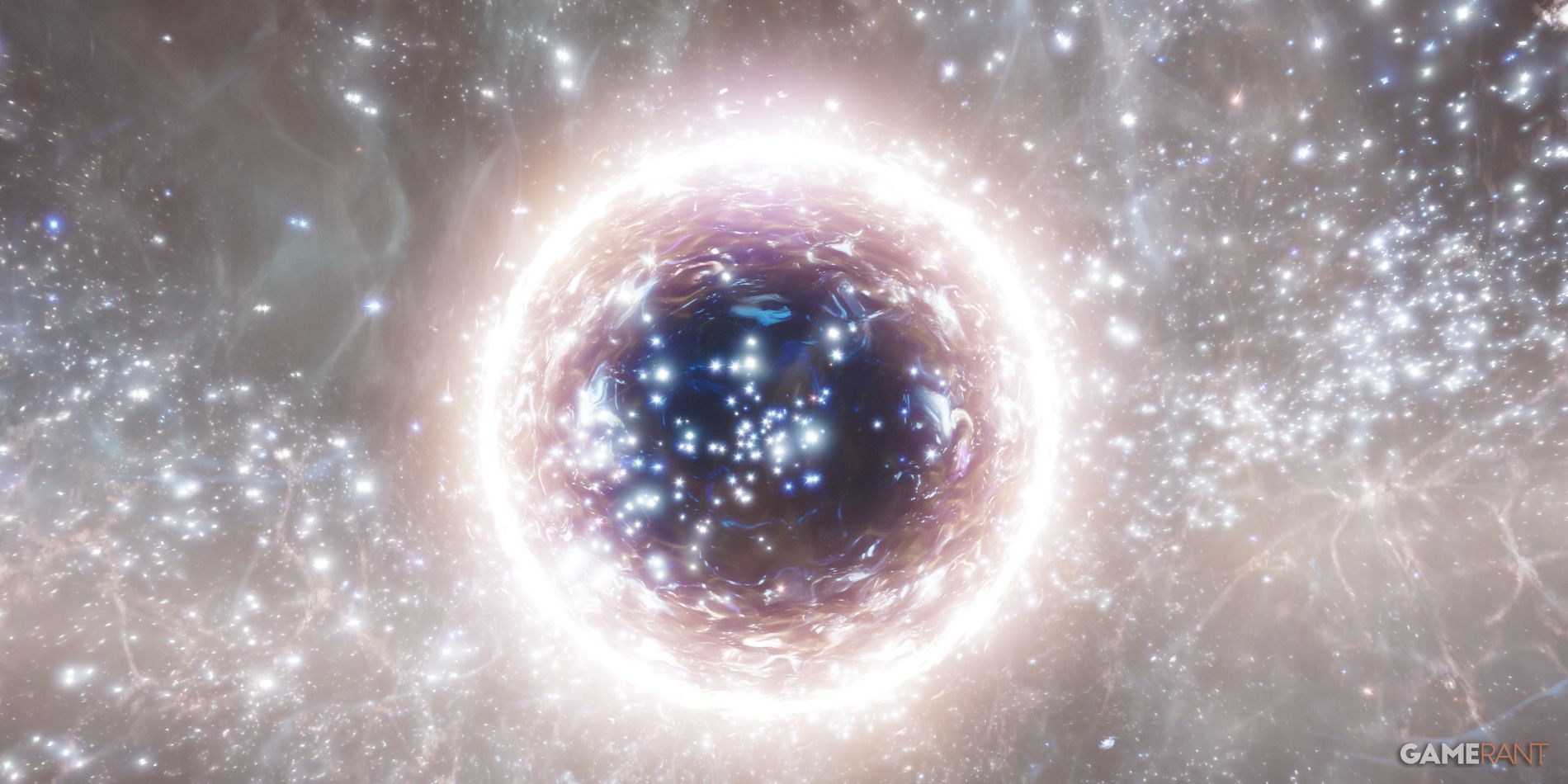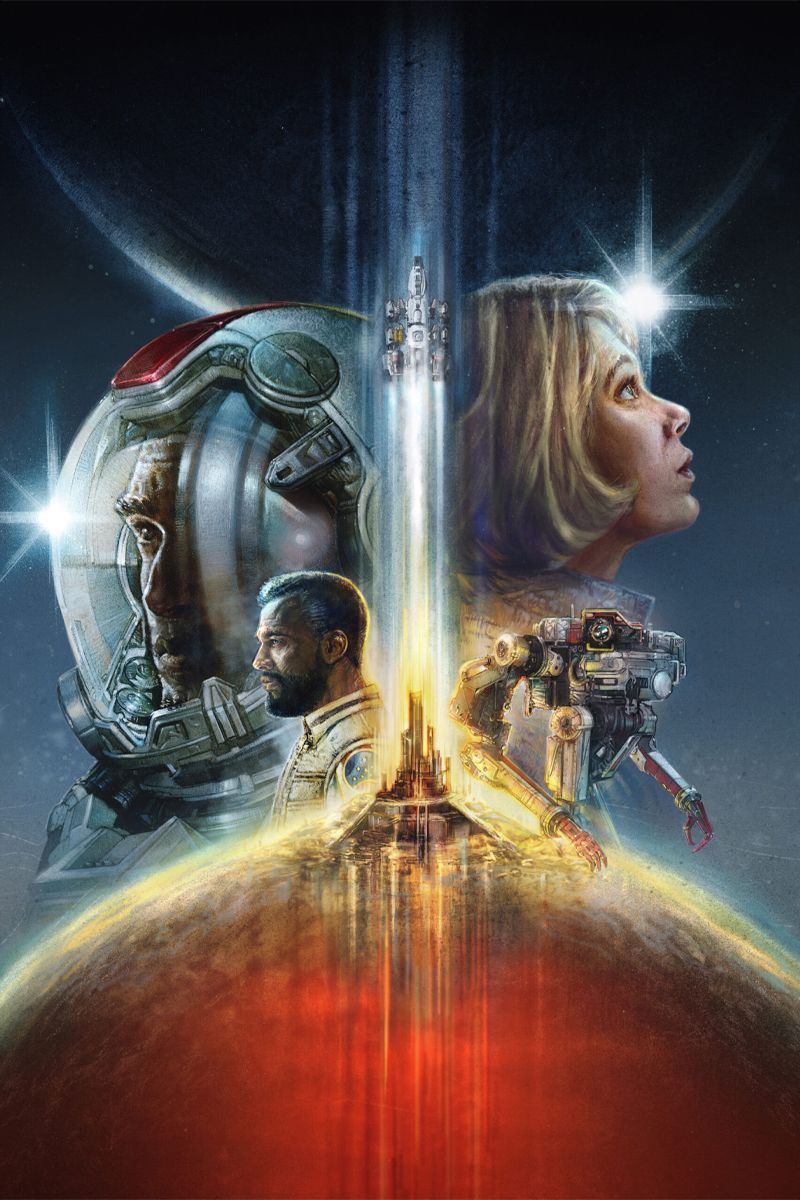
Starfield: A Flawed Yet Promising Foundation for Its Own Franchise

Starfield's potential as a franchise lies in its expansive multiverse, offering limitless storytelling possibilities However, the challenge lies in avoiding audience fatigue due to the prevalence of multiverse themes in media, which could impact the success of future Starfield sequels
WARNING: MAJOR SPOILERS for Starfield ahead. Proceed at your own risk.
Article Key Points
Starfield's introduction of a multiverse offers Bethesda the opportunity to establish the sci-fi RPG as its own franchise, enabling players to venture into vastly distinct renditions of familiar realms in potential future installments.
The core mechanic of the multiverse in Starfield opens up countless possibilities for captivating narratives, encompassing alternate dimensions that span the spectrum from humorous to sorrowfully somber. Nevertheless, the extensive reliance on the multiverse concept may dissuade certain players who have grown weary of its excessive portrayal in various forms of media.
The prevalence of multiverses in popular media, such as movies, TV shows, and games, poses a challenge for a multiverse-focused Starfield sequel to distinguish itself. Bethesda must offer a fresh approach to this concept, presenting unique alternate versions of the game's universe to captivate players.
Upon Starfield's long-awaited release in September for Xbox and PC, the sci-fi RPG surprised gamers with an unexpected twist in its storyline. The introduction of a multiverse in the latter part of the game not only caught players off guard due to Starfield's emphasis on hard sci-fi, but it also presented an opportunity for Bethesda to transform their open-world RPG into a franchise. With this narrative element, Bethesda can transport players to vastly different iterations of familiar worlds in a potential sequel. However, in a media landscape already saturated with multiverse tales, this type of time-traveling narrative might feel repetitive.
Thanks to the multiverse at the core of its narrative, Starfield has the ideal groundwork to become a notable franchise. Starfield’s New Game Plus mode already grants players a glimpse of alternate paths the universe could have traversed, but future installments could expand on this concept, introducing profound alterations to the game’s science fiction backdrop. Yet, while this paves the way for Bethesda to transform Starfield into their next major franchise, there is a potential hurdle: the reliance on the multiversal mechanic, a concept that has grown all too common in the world of sci-fi media.
Starfield’s Multiverse Creates Endless Opportunities for Storytelling
Upon completing Starfield's campaign and achieving the Starborn status, players are granted the freedom to embark on another journey, armed with the acquired skills and knowledge from their previous endeavor. While the main storyline remains consistent across multiple playthroughs, Bethesda occasionally introduces unexpected twists in these parallel dimensions. These alternate universes within Starfield span the spectrum from comedic to dishearteningly gloomy, providing a glimpse into the potential scenarios that may unfold in future installments.
Starfield's captivating multiverse serves as the perfect foundation for building a successful franchise.
From a sequel that explores a universe where conquest takes precedence over exploration within the Constellation, to a version of the cosmos devastated by the menacing Terrormorphs, the potential for sequels and spin-offs is limitless. However, while the multiverse offers Bethesda unparalleled creative freedom to concoct infinite variations of the Starfield universe, some players may feel fatigued by the sci-fi storytelling mechanic. Regardless of the inventive plotlines and visually stunning alternate worlds, a Starfield sequel that relies solely on the multiverse concept may alienate certain gamers.
Multiverse Fatigue Could Make Starfield Sequels a Tough Sell
The Overabundance of Multiverses in Media Could Hurt Starfield Sequels
Marvel's utilization of the multiverse in its movies solidified the theory's presence in popular culture; however, its current prevalence in various forms of media has caused many to become quickly fatigued with the concept. This could potentially pose a problem for a Starfield sequel that heavily relies on this storytelling mechanism, potentially dissuading some players from even giving the game a chance. Adding to the challenge for Bethesda is the fact that, similar to their cinematic counterparts, a number of recent games have also incorporated the multiverse as a fundamental aspect of their narrative.
A Starfield sequel that heavily relies on the multiverse may alienate some gamers, regardless of how innovative the storyline or visually captivating the alternate worlds are. Multiverses have gained popularity in games, just like in TV and film, from the violent Mortal Kombat series to the interconnected cartoon worlds of the HoYoverse Multiverse. In order for a multiverse-focused Starfield sequel to stand out, Bethesda would need to provide a unique spin on this popular concept. This can be achieved by offering players alternative versions of the game's universe that go beyond superficial alterations to the story and setting.
By further developing the concept of multiverse-hopping that was introduced in New Game Plus, Bethesda has the potential to transform Starfield into its next major franchise. If they can successfully create distinct and one-of-a-kind variations of the game's universe, rather than simply presenting the same locations with different appearances, future installments of Starfield could captivate players as they explore the vastness of the game's galaxy for years to come.
Starfield
Developed by Bethesda Game Studios, Starfield is a sci-fi action role-playing game that allows players to interact with various factions, partake in battles, personalize their main character and spacecraft, and explore a vast universe comprising more than 100 systems and 1,000 planets.
Platform(s): PC, Xbox Series X, Xbox Series S
Release Date: September 6, 2023
Developer(s): Bethesda
Publisher(s): Bethesda
Genre(s): Action, RPG
ESRB Rating: M for Mature 17+ (Blood, Suggestive Themes, Use of Drugs, Strong Language, Violence)
Estimated Gameplay Time: 20 Hours
Metascore: 86
Editor's P/S
Starfield's introduction of a multiverse presents both opportunities and challenges for the franchise's future. On one hand, the multiverse opens up endless storytelling possibilities, allowing players to explore vastly different renditions of familiar realms. This could lead to captivating narratives that span the spectrum from humorous to sorrowfully somber. On the other hand, the extensive reliance on the multiverse concept may dissuade certain players who have grown weary of its excessive portrayal in various forms of media.
To avoid audience fatigue, Bethesda must offer a fresh approach to the multiverse concept in future Starfield sequels. This could involve presenting unique alternate versions of the game's universe that offer genuinely new and exciting experiences. By taking this approach, Bethesda can ensure that the Starfield franchise remains compelling and engaging for players, even in a media landscape saturated with multiverse tales.









